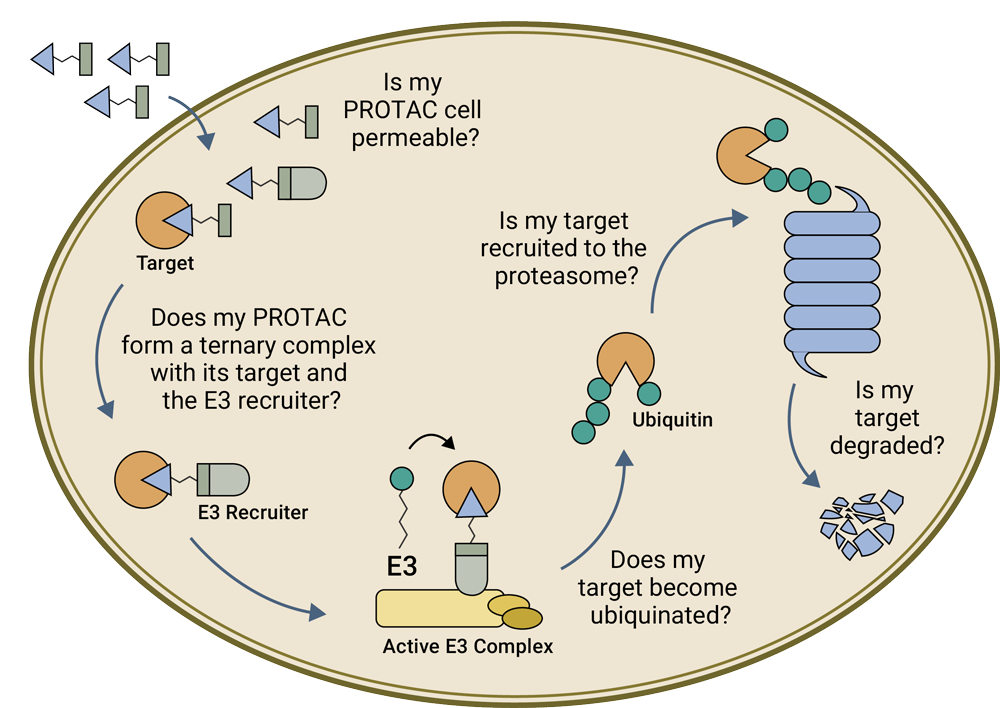The Academic Access Program (AAP)
Join this program to collaborate with Promega scientists and get affordable early access to our newest technologies. We’re looking for key thought leaders in immuno-oncology, therapeutic antibody discovery, CAR-T cell therapy, inflammatory response, vaccine development and other areas where next-generation drugs are being discovered. Using our cutting-edge tools and reagents, you can impact human health quicker and more consistently than ever before.
Join the Academic Access Program
To learn more and find out if you qualify for the program, fill out this form to tell us about you and your research.
Promega AAP Benefits

Get early access to pre-launch, cutting edge technology being developed by Promega R&D

Influence technology development through interaction with Promega’s Advanced Technologies Group (ATG) and R&D scientists

Gain eligibility for travel grants to conferences where Promega technology will be presented

Program-specific pricing for cell-based functional bioassays & prebuilt CRISPR engineered cell lines and other cutting-edge technologies.
CRISPR-Engineered Cell Lines
By using CRISPR/Cas9 gene editing to knock in a tag at endogenous loci of interest, proteins expressed by the native promoter can be studied using simple optical output measurements. Compared to overexpression models, endogenously tagged proteins maintain natural epigenetic regulation and stoichiometry with native interacting partners, resulting in improved assay windows, minimized artifacts, and more accurate models of protein biology under physiologically relevant conditions.
We offer a broad selection of prebuilt CRISPR-edited human cell lines for multiple physiologically relevant targets, tagged with Promega reporter tags.

Reporter Tags
Most cell lines are built through knock-in of the HiBiT bioluminescent tag. Some are built with full NanoLuc® Luciferase or the self-labeling HaloTag® Protein.
HiBiT Protein Tagging System
HiBiT simplifies protein detection, providing a streamlined, antibody-free protocol for detecting tagged proteins.
NanoLuc® Luciferase
The small size (19KDa) and bright luminescence of NanoLuc® Luciferase brings exquisite sensitivity to many applications, including studying genetic responses and protein dynamics in cells at physiologically relevant levels.
HaloTag® Technology
Investigate protein function by adding the HaloTag® to your protein, paired with one of many interchangeable ligands that forms a highly specific covalent bond with HaloTag.
Targeted Protein Degradation
Selectively targeting proteins for removal from the cell, instead of inhibiting protein activity, is a newer modality for potential therapy. The protein is targeted for degradation using the cell’s natural ubiquitin proteasome pathway (UPS). Compounds such as molecular glues and proteolysis targeting chimeras (PROTACs) initiate this process by linking the target protein to an E3 ligase. The cell’s UPS does the rest.
We offer assays and CRISPR-edited cell lines using sensitive bioluminescence technology to facilitate studying popular protein degradation targets.
One of our most popular targeted protein degradation target cell lines involve RAS oncogenes, the most frequently mutated oncogene in human cancers.
Key Questions To Consider When Developing Protein Degraders

The Bioassay Advantage
The use of Mechanism of Action (MoA)-based bioassays to measure the activity of Antibody-based therapeutic drug candidates is critical throughout the drug development workflow. Promega bioassays offer a rapid and simple workflow compared to traditional methods that rely on inconsistent methods involving primary cell culture to measure potency of biologics.

Promega Bioassay General Principle. Bioassay Effector Cells are engineered to express either FcγR, or immune checkpoint or cytokine or growth factor receptors/ligands and luciferase reporters driven by an appropriate response element that is based on MoA. In the presence of antibody and/or target cells expressing the relevant antigen, the effector cells will transduce intracellular signals, resulting in luciferase activity that can be easily quantified.
Bioassays for Academic Research
We offer a wide range of functional MoA bioassays to ensure consistency in your results. Gain access to the same tools pharmaceutical and biotechnology companies use to monitor mechanism of action in biologics.
Fc Effector Activity Bioassays
Reporter bioassays to measure the potency and stability of antibodies and other biologics that specifically bind and activate Fcγ receptors.
PBMC ADCC Bioassays
ADCC qualified human PBMCs along with engineered Target cells expressing HiBiT protein to measure the potency and stability of antibodies and other biologics that specifically bind and activate Fcγ receptors.
T Cell Activation Bioassays
T Reporter bioassays to accelerate the discovery and development of novel biologics, such as bispecific antibodies, TCR therapy and CAR-T cell therapies.
Immune Checkpoint Bioassays
Reporter bioassays to measure the potency and stability of antibodies and other biologics designed to block the interaction between immune checkpoint receptors and their ligands.
Cytokine and Growth Factor Bioassays
Reporter bioassays to quantify and monitor the activity of ligands, as well as antibody-mediated blockade of ligand receptor binding.
Learn more about Promega bioassays for biologics
Program FAQ
Read through the answers to the frequently asked questions. If you have additional questions, please contact your local sales representative.
What products are included in the program? Promega’s full suite of Bioassays, Cell Lines, Cell Propagation Models, Thaw and Use Kits and Prebuilt CRISPR Cell Lines are all included within the AAP.
Can I include other products? The aim of the AAP is to increase collaboration between academic researchers and Promega, and provides enough flexibility to enable you to achieve most goals. Should you require something outside the scope of the current AAP, please contact your local Promega account manager to discuss your requirements.
What about CRISPR content? Promega is fully licensed to produce and provide CRISPR engineered cell lines to all customer segments. AAP specific pricing applies to these cell lines.
What pricing will I be offered? Pricing depends on the type of engagement and collaboration you agree upon with your Promega account manager.
Are there minimum order requirements? There are no requirements for order size, volume or frequency.
Is there a fee to join? Aside from the cost of the products you purchase, there is no additional cost to join the program.
What’s the catch? There is no catch, but there are terms and conditions. The terms and conditions are designed to support a partnership between Promega and academic researchers to apply Promega’s cutting edge technologies to the most urgent biomedical research needs at an affordable academic price. Terms and conditions are specific to each geographical region and you should contact your local Promega account manager for more information.
What do you expect from me? The Promega Academic Access Program is a tool to enable research and the level of commitment and collaboration will depend upon the research activity. We may require you to share product related data with our R&D team (in complete confidence) or we may offer you the opportunity to present your work at a conference attended by Promega. The exact level of collaboration will be agreed upon prior to acceptance into the AAP.
What opportunities are there to present my work? Participants within the AAP may be offered the opportunity to present a poster or talk at a meeting or conference. These meetings can occur in any part of the world; Promega may sponsor the registration and travel costs. Other opportunities to share research could involve participating in a webinar or coauthoring papers or application notes.
Who can join? If you are working in immuno-oncology, inflammatory response, vaccine development or other areas where next-generation drugs are being discovered, then we would like to hear from you. Our goal is to collaborate with key thought leaders in these disciplines within the academic environment to accelerate research and development globally.
What are the benefits to joining?
- Early access to development project material pertaining to your area of research.
- Interact with Promega R&D and ATG (Advanced Technology Group) scientists, along with the possibility to influence the direction of Promega product development activities.
Join the Academic Access Program
To learn more and find out if you qualify for the program, fill out this form to tell us about you and your research.